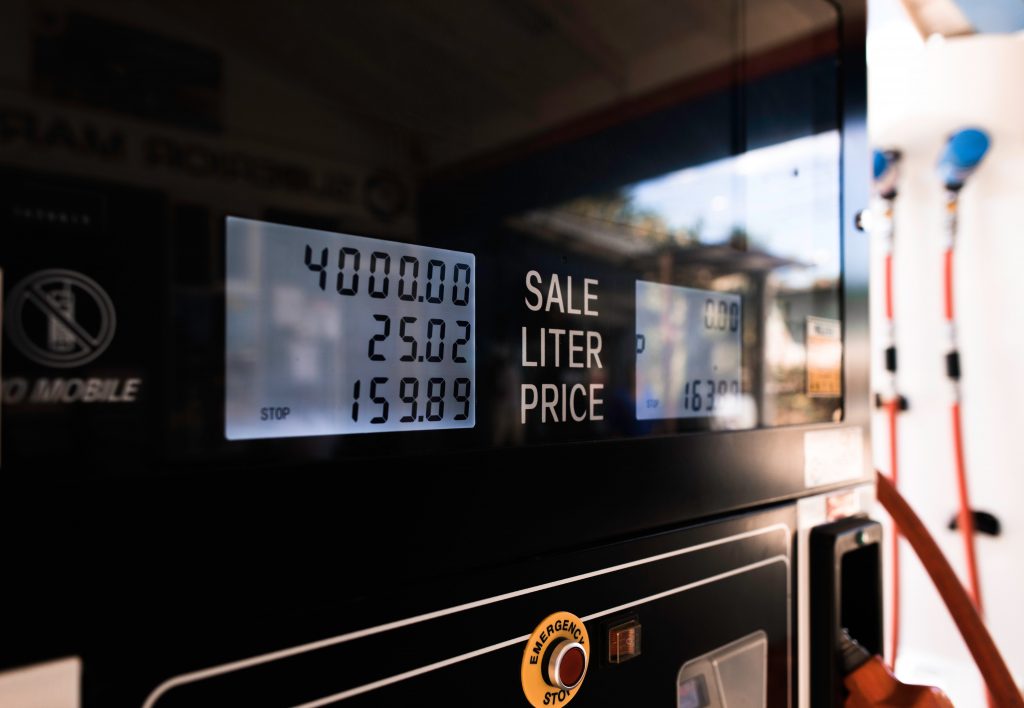Howdy 👋
The climate won’t wait, so I won’t either. Let’s get into the good stuff. Enjoy and make sure to let a friend know about your favorite article in this week’s newsletter.
– Swarnav S Pujari
In Your Inbox: Fossil fuel subsidies are finally getting cut; Resources for startups from Amazon; Data to manage crops

Recent news shows some governments cutting back on subsidies for oil and gas companies. But these are small moves, given the vast scale of the subsidies showered on fossil fuel companies, and they’re not yet cemented in place.
It’s not a surprise that fossil fuel industries’ bottom lines are bolstered by a mountain of subsidies: plentiful and reliable energy is essential to any nation’s economy and for over a century fossil fuels have been the most plentiful and most reliable sources of energy. As we near the endgame for fossil fuels, it’s similarly no surprise that energy companies are fighting to preserve them – subsidies to fossil fuel companies have risen to more than a half-trillion dollars per year: without them, they’d be losing money. The subsidies alone account for at least 0.75% of the entire world’s economy.
But chip by chip, the mountain is eroding.
But what seems like progress is still small. Lowered fossil fuel use in 2020 – driven in part by the COVID pandemic’s impact on the global economy – meant that overall at-sale direct subsidies dropped in 2020 to a still-vast $180B worldwide, down as much as 40% from the prior year. This figure remains slightly more than the net of direct subsidies to clean energy types. The IEA’s estimates put Iran ($30B in 2020), China ($25B), and India (nearly $24B) atop the list of biggest subsidies.
But, the IEA is focusing exclusively on subsidies at the point of use (by end-users or by energy generators) and completely excludes other subsidies. In doing so, the IEA vastly underestimates the extent of subsidies: countries such as the US, Canada, and Australia are completely excluded from the IEA’s count. As is Russia. (Link HERE) Bizarre.
The absurdity of depicting the USA as having zero (!) subsidies is a consequence of being hyper-strict about definitions.
The on-the-ground reality is that fossil fuel firms have held great power, dictating the terms of their own success to governments. In “Blowout”, Rachel Maddow’s polemic on the corrupting nature of fossil fuel businesses, great attention is paid to how in recent years Oklahoma’s state budget was bent again and again to the needs of the oil and gas industry. These reached absurd extents – such that the state’s balanced budget mandate meant keeping cutting programs for schools, and roads, to preserve benefits to oil and gas firms. And it meant defending from financial liability the fracking firms whose activities caused earthquakes that in turn damaged buildings and roads.
An alternative estimate: the US provides direct subsidies for fossil fuel production to the tune of $14.7B per year (federal support) plus $5.8B (state-level support): mostly in tax deductions and exemptions. Link HERE and HERE, with the latter source providing a robust breakdown of types of subsidies in the USA, excluding still costs created by fossil fuels companies but carried as externalities. Compared to this, the projected long-term reduction Biden has proposed – $3.5B / year – is but 17% of the total the firms already swallow. Similarly, European Union subsidies are estimated at Eu55B ($US66B) per year.
And Canada: $CD5B per year (about $USB) in federal and provincial subsidies. Alberta’s own $C1B+ per year set of subsidies, particularly for the province’s particularly dirty tar sands, is increasingly under attack. (The tar sands take so much energy to create oil that they require subsidies to compete. LINK)
In total, fossil fuel companies reap over one-half trillion dollars in subsidies per year (Link HERE). That vast sum won’t erode quickly: but erode it will.
Sign up for The Impact and learn the perspectives behind the latest sustainability trends

Consumerism is rampant and is contributing to climate issues. Amazon is one of the biggest e-commerce businesses in the US—in 2020, Amazon captured 49.1% of the market. With the growing concern of climate change over the last couple of years, Amazon has made ambitious commitments to achieving net-zero carbon by 2040 as part of the Climate Pledge. Amazon is decarbonizing its business and supporting customers to achieve its sustainability goals. Below are a few of the ways Amazon is tackling climate change:
Climate Pledge Fund: The Climate Pledge Fund is a $2B investment fund specifically focused on climate tech companies that can solve Amazon’s problems.
Right Now Climate Fund: The Right Now Climate Fund is a $100M fund focused on nature-based efforts to reduce carbon.
Activate: Activate is a way for startups to get free credits on Amazon (available for any startup).
Clean Energy Accelerator: The AWS Clean Energy Accelerator is AWS’s first accelerator focused on fostering the rapid growth of cleantech innovations. The goal of the AWS Energy Accelerator is to help startups working in clean energy accelerate their impact, access additional resources, and expand their reach.
Techstars Sustainability Challenge: As participants in the Techstars Sustainability Challenge, Amazon is looking for startups to collaborate with that align with Amazon’s Climate Pledge Fund and goals.
Amazon Climate Pledge Friendly: The Amazon Climate Pledge Friendly helps consumers find sustainable climate-friendly products. There are 20+ certifications that Amazon uses within this initiative to identify certified sustainable products.
Amazon Data Exchange: The Amazon Data Exchange is a marketplace for data, including data for climate and sustainability (available for free). This is key because many solutions to address climate require data.
Amazon is demonstrating its concern for slowing climate change by publishing its carbon footprint, providing transparency and insights into Amazon’s operations and what they’re doing to reduce those emissions. Amazon is demonstrating that larger organizations have a role to play in going net-zero and averting a climate crisis.

Acuity Agriculture is a California-based precision agriculture company and Steven Dodge is the founder. Steven and his team have done a remarkable job contracting work with farmers in the West and delivering data-based solutions to help farmers manage their crops.
Acuity Agriculture has not raised external funding but they are considering it. Perhaps if they scale with external funding, they could help tackle climate goals such as reducing energy use and improving carbon sequestration in agricultural operations or other markets.
When I talked with Steven over a year ago about how his precision ag venture was successful in a market that is typically very difficult for technologists to succeed in, he noted his farming background where he admitted that getting sold on new technologies nearly every single day got old and that if he did take on new technology and it didn’t work, the supplier would get a call from him letting them know where their stuff was sitting on his farm and they had to remove it as soon as possible. Farmers don’t have time to fuss around and Steven understands that.
Acuity Agriculture claims it helps farmers reduce water and fertilizer use by half. If so, that would be helpful. Also, the data they provide helps farmers cut the run-time of diesel-powered water wells. This is impactful because nearly 20 percent of California’s energy is used on water and much of that is conveying the liquid asset.
Data-management solutions help farmers minimize the use of water and fertilizer in addition to improving crop yields which could significantly support climate goals. Reducing farming inputs such as fertilizers reduces the greenhouse gases that result from producing those fertilizers. And, higher crop yields mean healthier plants and root systems which help sequester carbon in the soil.
In the future, Steven Dodge sees Acuity Agriculture expanding its data management services to solar, wind, and even oil monitoring. This belief is attributed to the company’s use of universally friendly data loggers that plug and play with any sensors in the market. As his technology services have been used to provide dashboards so farmers better manage their water and fertilizer inputs, he wants to improve both traditional and renewable energy sources in similar ways.
If this precision agriculture venture secures external funding to scale and successfully supports adjacent markets, Steven’s ability to put solutions in place that are easily integrated into existing operations may keep him from having to pick up his stuff off the side of a road somewhere. I wish him luck.
Editors: Swarnav S Pujari, Daniel Kriozere Writers: Jeff Macon, John Conor Ryan
If you aren’t absolutely thrilled with The Impact, reply and let us know why. Or you can unsubscribe from all updates by clicking here.
Copyright © The Impact 2021. All Rights Reserved || 19 Morris Ave, Bldg 128, Brooklyn NY 11205
Develop your market map of up-and-coming climate startups and market opportunities by subscribing to our weekly newsletter for free.